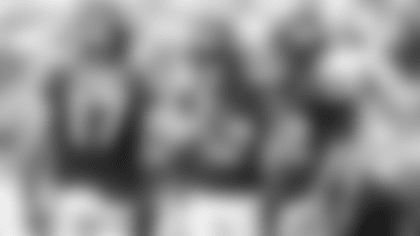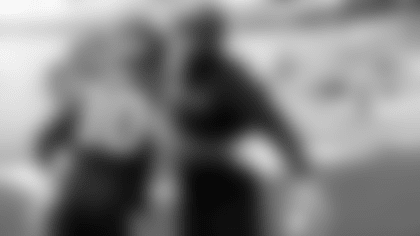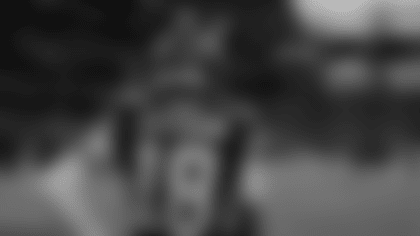The flag football camp had just wrapped up.
The late-afternoon sun cast a golden glow over the simple, rugby-turned-football field as Vikings linebacker Brian Asamoah II and his peers — including teammates Aaron Jones, Sr., and Jordan Addison — prepared to huddle up and compare evaluations.
Then, the bus pulled up.
A young man stepped off and looked around, acknowledgement of his late arrival evident in an anxious expression. He'd spent the past four hours on the sweltering, potholed ride from his town to Accra, Ghana, to participate in "Road to LA28," modeled after the NFL Scouting Combine (though separated by 5,700 miles). Approximately 100 hopefuls had gathered at the University of Ghana for a chance to demonstrate their athleticism and be selected for a 50-player pool that would train and work toward representing Ghana at the 2028 Olympics in Los Angeles.

Jones, Asamoah and Addison, along with Paulson Adebo, Joseph Addai, Ezekiel "Ziggy" Ansah and Jude Adjei-Barimah, had already ran the large group through timing and testing drills (40-yard dash, shuttle run and vertical jump) and football-specific workouts and stations.
But the effort the young man had shown made an impression, so the coaches ushered him onto the grass.
"He went through everything, and he laid down some numbers," Jones said. "You know, we're so fortunate over [here in the States] to even get a pair of cleats or be able to attend the nearest camp; football is all around us. But here, it's not. These kids are making sacrifices.
"He didn't have any cleats. He had shorts on, some running shoes … and he ran a 4.4 twice. Didn't even stretch," Jones added, his voice still reflecting disbelief. "He ran a 4.4 twice, oh my god, then just gets back on the bus."
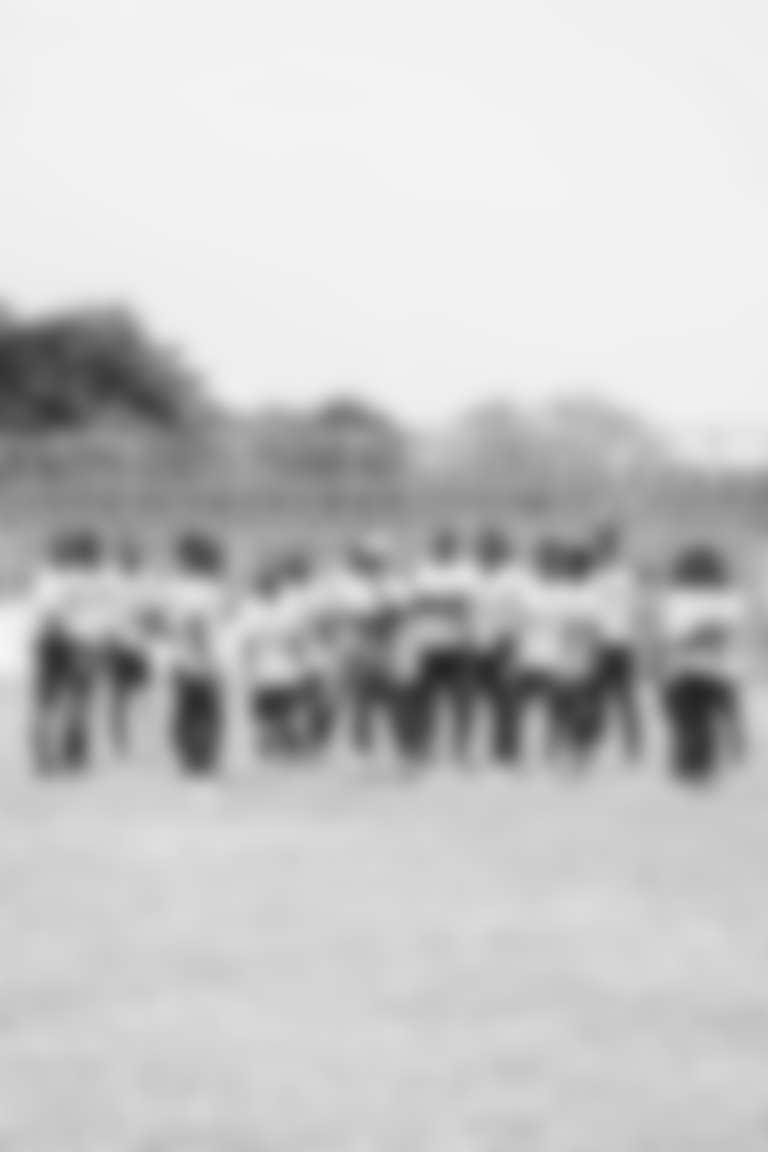
Though other athletes didn't hop directly from a bus to the starting line, many of them carry similar stories.
Natural talent, awaiting opportunity.
Addison, Asamoah and Jones noted the size, speed and skills they witnessed from young men who have lived their entire lives in Ghana without any formal athletic training.
"You see some of those kids and think, 'You need to be playing [tackle] football.' I'm talking, you might see a 16-year-old who's about 6-6, 240, And you're like, 'Hey, can we get him a helmet and some pads?' " Jones said. "All across the board, at each position, they have guys. They just need that light shed on them, and that's what B.A.'s doing.
"That was the part — seeing kids who go out there in tennis shoes and run faster than kids [in the States] who have resources and who've been working at it," he added. "It's like, 'Man, if these kids have these same resources, if we can even the playing field, it would move the game of football.' "
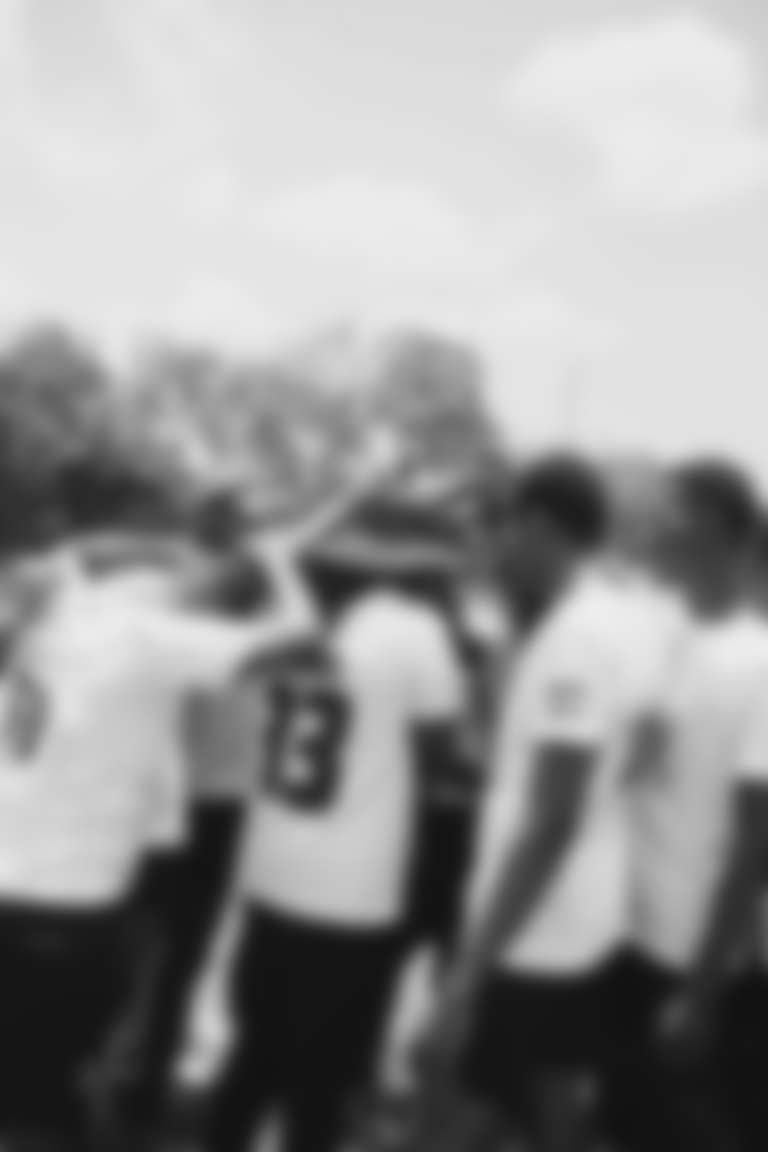
Asamoah noted the impact of Ositadimma "Osi" Umenyiora, a British-Nigerian former NFL defensive end who had tremendous influence on the league and has helped widen the pipeline from Nigeria to the NFL.
Currently, NFL players of Nigerian heritage significantly outnumber those of Ghanaian heritage.
Asamoah hopes to one day see Ghanian players more heavily represented across the NFL.
He views it as his calling — something he's felt drawn to ever since visiting Ghana as a 10-year-old to spend time with family and learn more about his roots.
"I always wanted to find ways to bridge that gap between Africa and American football," he said. "So this whole thing is passion driven, something I'm truly invested in and trying to help these kids really get an opportunity.
"I saw the differences. I saw the tradition. I saw things that [made me think], 'OK, we have [so much talent here in] Ghana, but we are lacking resources.' Like, I saw that at 10 years old," Asamoah continued. "I told them I played football and they were like, 'What is football?' … Now you say 'football' and they say, 'Oh, I know what that is. I know what the NFL is.'
"This is all something I'm truly passionate about, and I think it's going to be something that's eventually a lasting legacy. I don't care about it being my name. I just wanted to help the players," he added. "I want them to really one day say, 'I got drafted' or, 'I'm able to take care of my parents.' Like, that's what it's all about for me. I want to turn the stones so the stones can keep turning for others. That's the lasting impact that I want to leave in Ghana. And one day when I'm old, when I'm not playing football anymore, I'm seeing more Ghanaians [in the league]."
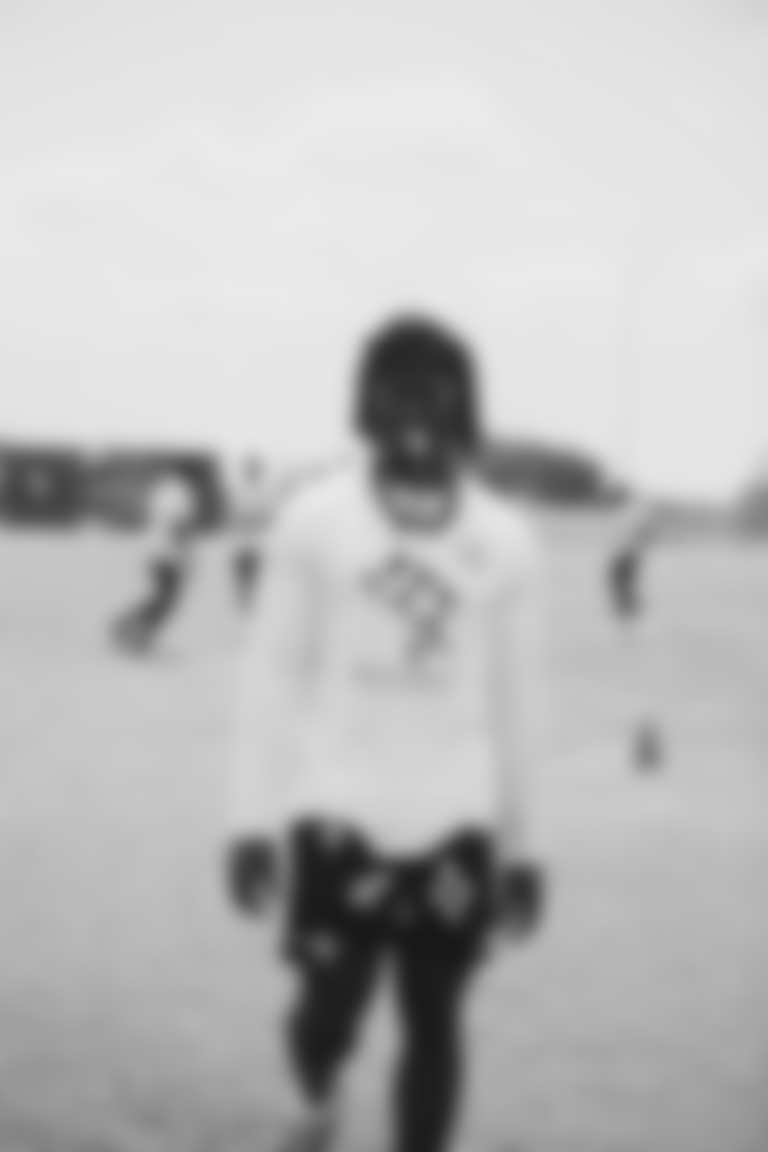
Cultural appreciation
Asamoah has long appreciated his Ghanaian heritage and has now made multiple trips to the country in West Africa, but this year's visit included new and special experiences.
Asamoah's parents originally are from Kumasi, a two-hour drive from Accra, and belong to the Asante tribe, one of more than 70 ethnic groups within Ghana. The family immigrated to the United States before Brian (the youngest of five children) was born.
He's appreciated sharing his culture with Vikings teammates whenever possible, and he especially was thankful for the opportunity to introduce Addison and Jones to new food, activities and experiences during their trip.
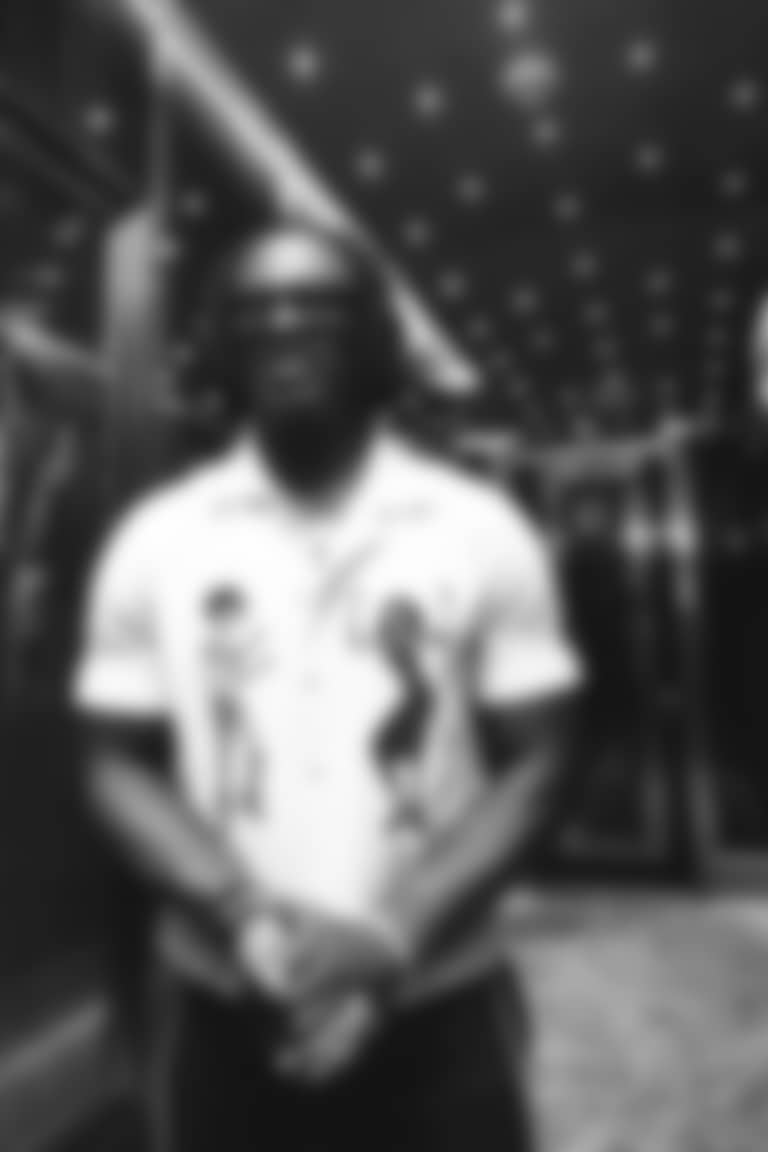
One encounter the group will never forget was meeting the Gã Mantse, the king of Accra.
"It was amazing, being in the presence of a king and seeing how everything is conducted … it's exactly how you might imagine. Furs laid out in front of him, a big chair," recounted Jones, who had never previously been to Africa. "But … it's faith-based, as well, which was pretty cool to see. When you're thinking you're going to meet the king, you wouldn't think you're going to get to pray with him. How many people get to pray with a king?"
The Gã Mantse's royal standing didn't stop him from having a bit of fun with the trio of Americans.
"He didn't speak at all for the first part, and then when he did speak, he's speaking in the native tongue (Ga)," Jones said. "Then out of nowhere, a good 10, 15 minutes of speaking the native tongue, he just switches it up to English. And his English is great. It's like, 'How come he wasn't speaking to us in English the whole time?' "
Interjected Asamoah with a laugh: "He really pulled a whole 180 on us."
Jones appreciated the king's affirmation of and encouragement to Asamoah.
"His message to B.A. was, 'We're all brothers. Whether you speak Twi (like the Asamoah family) or you speak Ga, we're all brothers. We're all together. We all represent Ghana,' " Jones recounted. "That was pretty cool to hear him say."
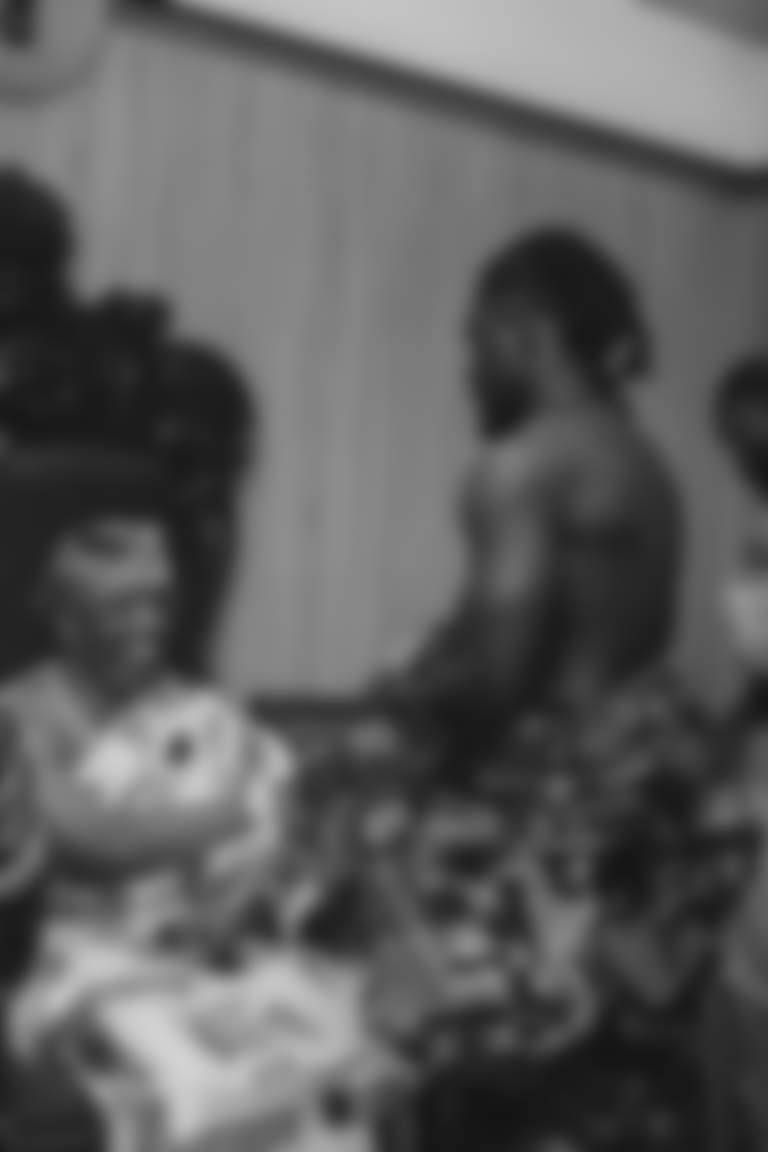
In preparation for meeting the Gã Mantse, the group donned formal Ghanaian garments called "Kente."
"This is something we wear to big events," said Asamoah, who has occasionally worn traditional Ghanaian clothing to U.S. Bank Stadium on game days. "If someone sees you in those garments it's like, 'Oh wow, he's steppin.' So being able to put something like that on, see royalty and shake hands with the king of Accra was incredible."
Jones called it "special" to receive traditional attire.
"Putting it on, learning how they tie it up, where they wear it, and also learning that in front of the king, you pull it down out of respect," he said, "was leaning how their culture works. I've picked up and moved around so much, so I like seeing how different cultures are."
After meeting with the Gã Mantse, Asamoah, Addison and Jones were introduced to Hon Kofi Adams, who serves as Ghana's Sports Minister and oversees all organized athletics throughout the country.
"I got to shake hands with him and bring awareness to what we're trying to do, [and] he wants to be a part of it," Asamoah said. "He's definitely in full support, which is so important."
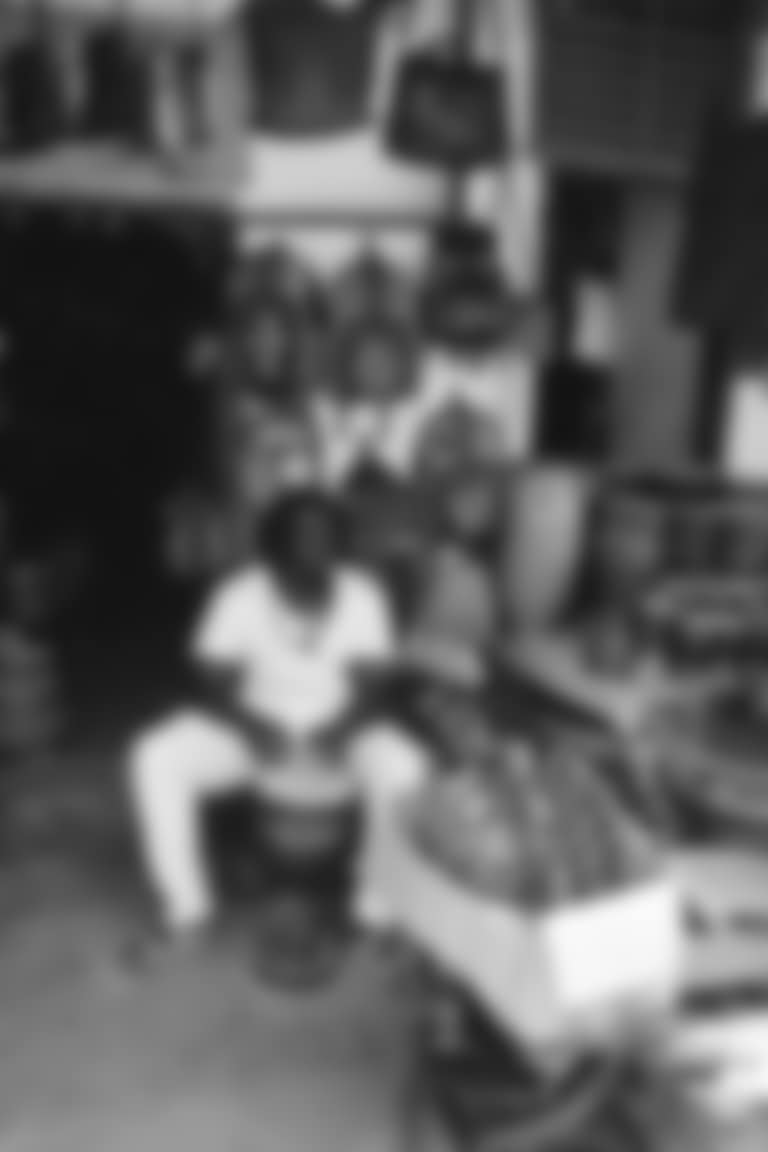
Life-changing trip
Whether interacting with the Sports Minister and Gã Mantse, trying new foods in the marketplace or touring various areas of the country, Jones was struck by the juxtaposition of extravagant luxury versus poverty and hardship.
He also, along with Addison and Asamoah, reflected on Ghana's significant place in African American history as a major port during the Transatlantic Slave Trade. Jones was unable to join his teammates in visiting the Cape Coast Castle, where thousands of enslaved Africans were kept and inventoried ahead of being shipped to the Americas.
Addison and Asamoah appreciated the opportunity to visit the historical site but naturally found it quite sobering.
"Understanding the history of how things went down there gave me a different perspective on how I should appreciate life," Asamoah said. "It was a good experience, an important experience, and something I'd want to do every trip. You see where the ships docked, you see the dungeons, you see the church and the space the masters slept — you see all of that."

Though Jones' travel schedule prohibited him from the final leg of the Ghana trip, he soon after joined the Vikings on a trip to Washington, D.C., with Project Success. He there toured the National Museum of African American History & Culture, where an exhibit detailed "The Gold Coast" and Cape Coast Castle.
"So much in the museum correlated with where I had just been," Jones said, "and it was truly full circle for me.
"The whole trip to Ghana gave me a deeper appreciation for [its history], as well as for the game of football and where it's taken me," Jones said. "And now I'm also able to spread that knowledge not just here in the United States but globally. When B.A. invited me, I told him, 'Bro — this is what it's all about. This trip is gonna make us closer.' And it did. We're brothers for life."





